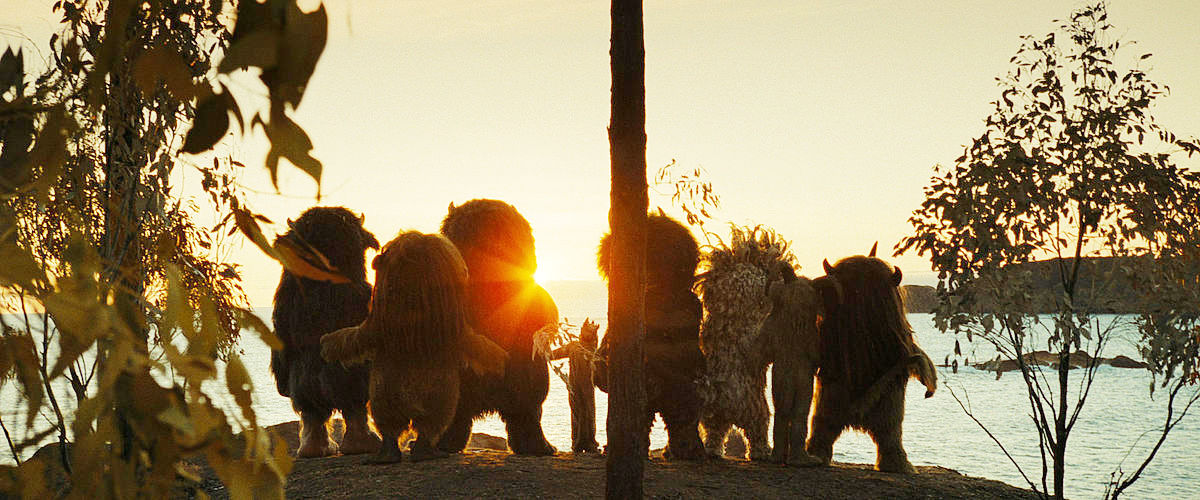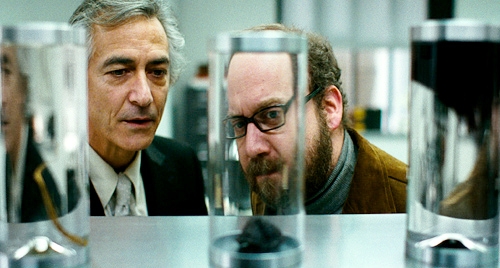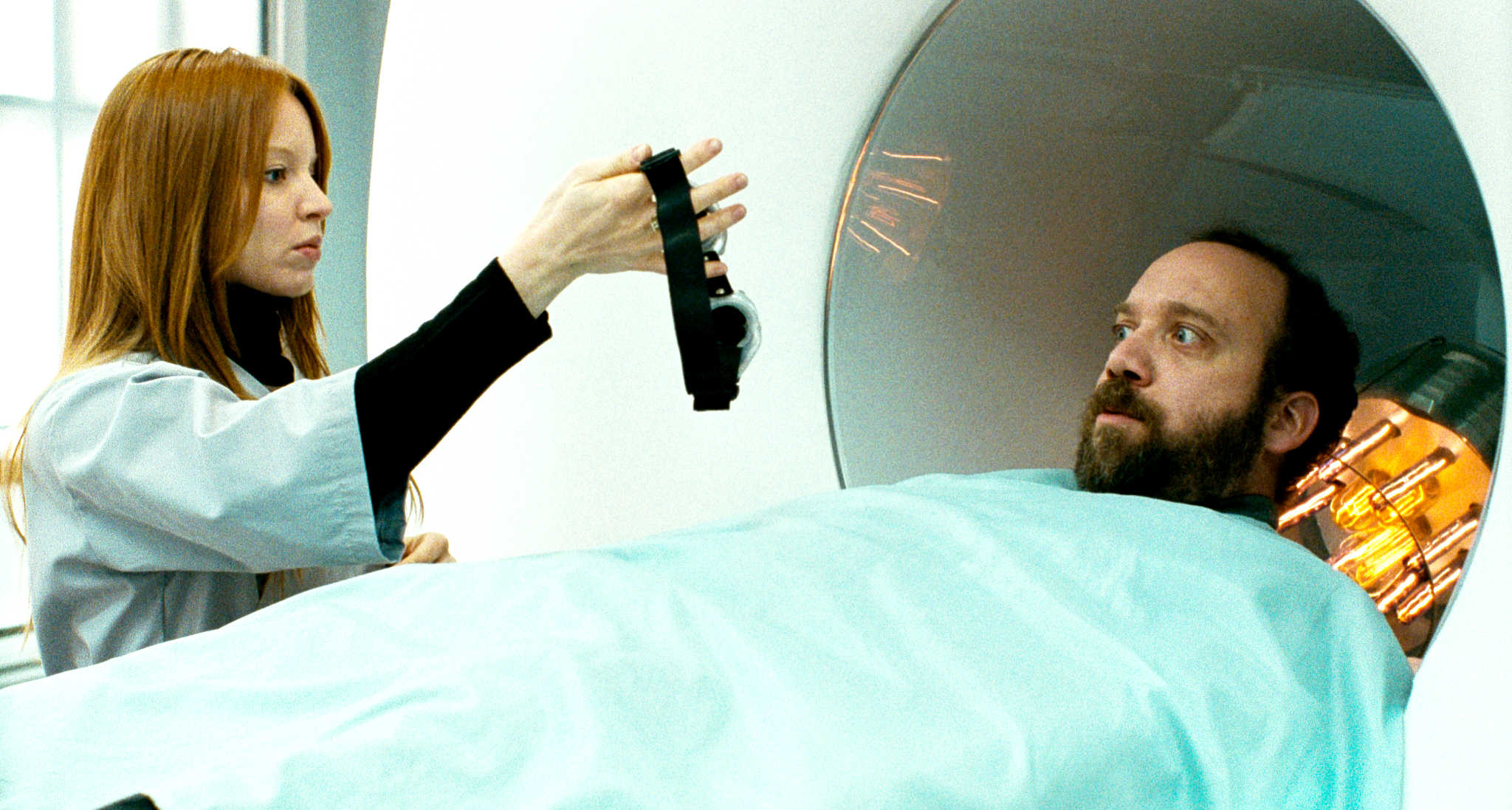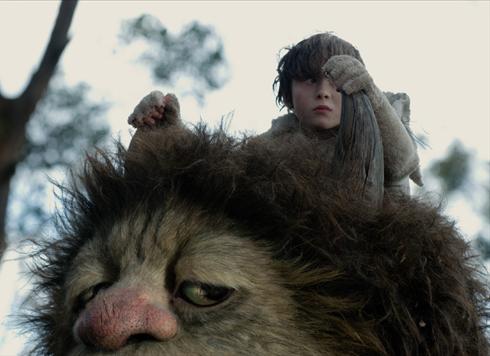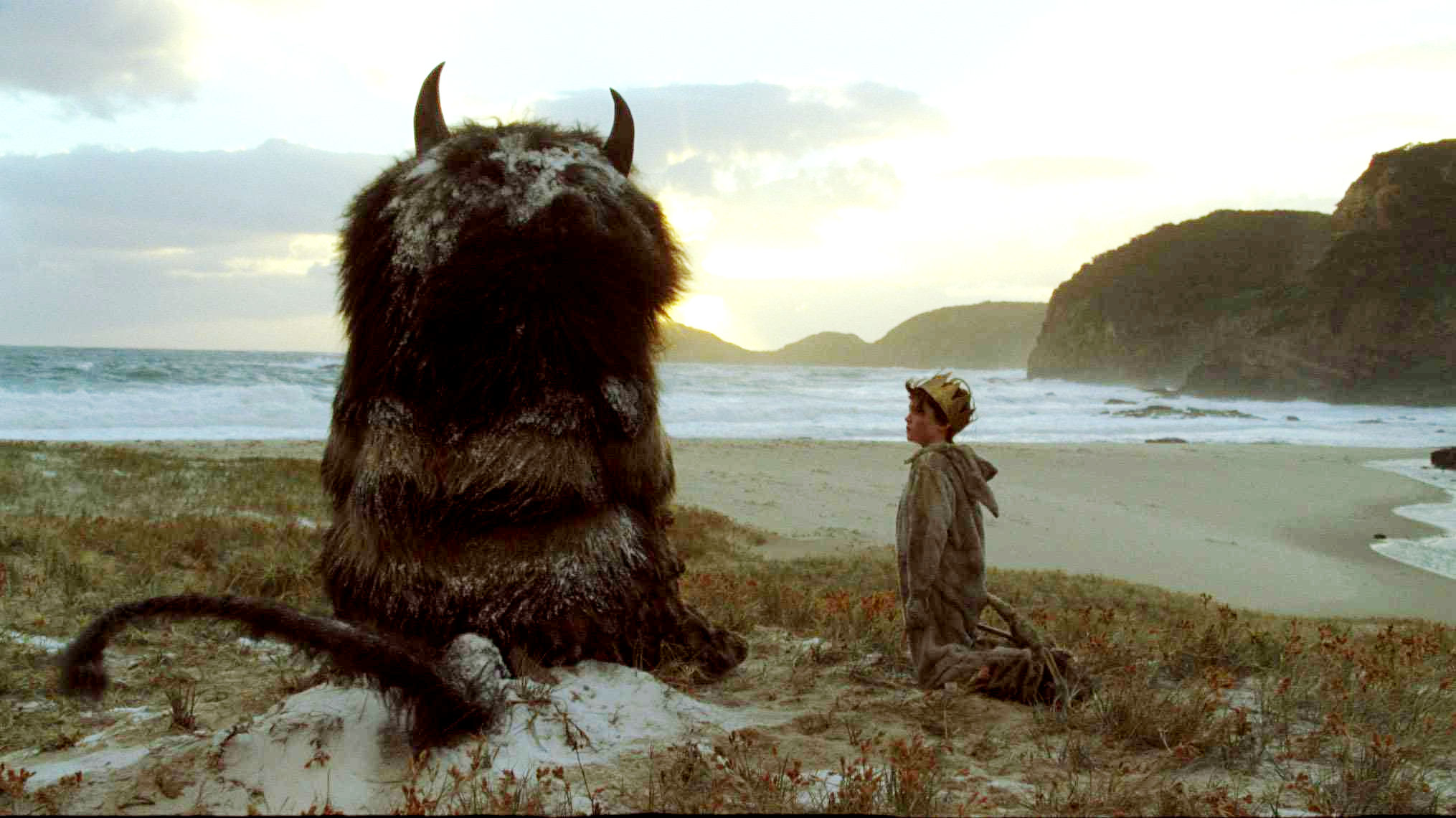
I know this film is eliciting some very positive responses, and I definitely admired the craftsmanship on display. WTWTA is not a bad movie, nor is it an embarrassment or anything like that. But, as the movie moped along, I kept having the same reaction to it: I just don’t remember my childhood, or Sendak’s book for that matter, being so emo. Sure, I guess I remember being angry or depressed or sad every so often — nothing a good 30 minutes with the Star Wars figures couldn’t remedy — but that didn’t mean there was always a Cure song ready to break out right around the corner. (That was adolescence.) And I just don’t get the sense that nine-year-old children really spend a lot of time pondering things like the Finite, their feelings, or their soon-to-be-lost innocence. They live in the moment. They just are.
In fact, to my mind all the introspective, autumnal, fall-from-Eden-type musing on hand in WTWTA is less a tendency of irate 9-year-olds than it is one of writerly adults…particularly, grandiloquent and exceedingly self-absorbed writerly adults like Dave Eggers, who penned the screenplay here (and accompanied it with a 300-page fur-covered “novelization.” That’s almost a page for every word of Sendak’s original book.) Your mileage may vary, of course — Clearly, the movie is affecting a lot of folks pretty strongly. But Where the Wild Things Are did not much speak to my inner child. In fact, my inner child was pretty well bored by it.
I would guess most people, in America at least, know the story of Sendak’s Where the Wild Things Are — either they read it to a child or remember reading it as a child. (I’m in the latter group, so the quotes below may be inexact.) Nonetheless, in the original story, Max is a bit too bratty to his Mom one night (“Feed Me, Woman!“), is sent to his room as a consequence, and enjoys a reverie in which he is King of the Wild Things. (“Let the Wild Rumpus Begin!“) Eventually, as his anger dissipates, Max grows homesick and returns “home” to a nice meal. The End.
In the movie, however, the story has been expanded in various ways. Max (Max Records) now has a older sister (Pepita Emmerichs) who seems to feature prominently in his imaginings (Lauren Ambrose.) Ok, fine. Mom (Catherine Keener) has an exasperating job and a new boyfriend (Mark Ruffalo). Eh, Ruffalo is pretty overexposed, but he’s here for all of 10 seconds, so no harm, no foul. And the now-highly mopey “Wild” Things (James Gandolfini, Chris Cooper, Catherine O’Hara, Forest Whitaker, Paul Dano) sound like Snuffleupagus, think like Eeyore, and are all in dire need of prescription-strength antidepressants and/or therapy. Uh, hold on…what?
Oh, ok, they’re all psychological manifestations of Max’s various black moods — snippy downer (O’Hara), feeling ignored (Dano), etc. — give or take the quick-to-anger Carol (Gandolfini), who may or may not be a proxy for Max’s father, the best friend Max never had, or even Max himself. And now these Mopey Things want a king, except the monarchy of Max the First keeps letting everybody down. Perfect government, it seems — even on issues as innocuous as dirt-clod fights and fort-building — is as ephemeral as everlasting innocence, the feeling of being loved, the last shaft of sunlight wending through the forest at twilight, our own human frailty…wait a second, stop the reel. Wasn’t this movie supposed to be about a little kid hanging with monsters?
Props to Jonze and Eggers for trying to do something different, I guess. When you put WTWTA up against recent hackmeisterly cash grabs like The Cat in the Hat, well, there’s no comparison really. And the creature FX here are simply stunning, so there’s that too. Still, I found myself increasingly put off by all the overwrought glumness on display in WTWTA. Max and the Wild Things should be primal little hellions, unstoppable forces of Nature. They should not be miserably sad head cases, or at least they weren’t in my imaginings. And I don’t think the problem is I’m too adult for this movie — This version of WTWTA ends with a misplaced Grey Havens-y, “I’ll miss you most of all, Scarecrow!” farewell on the beach, where Max and the Wild Things howl in lament at the passing of childhood. All I could think was “What’s the problem here? I was howling along with Berk just this morning.”
Which reminds me — I’ve always found Philip Pullman to be a considerable wanker, but it was thinking about a central conceit of his His Dark Materials trilogy that crystallized one source of my discontent with WTWTA. I guess, like Pullman and unlike Jonze and Eggers, I don’t necessarily see growing out of childhood as such an inexorable loss of innocence or horrible fall from Eden. Rather, I think kids — myself back in the day included — are mostly primal, needy, and half-formed (like Lyra), and becoming an adult is instead a boon, a caterpillar becoming a butterfly, an expansion of the possible. It is a door opening, not a door closing. Well, you definitely don’t get that sense from Where the Wild Things Are. In fact, if my own younger days were as flat-out miserable as those of poor Max here, childhood’s end couldn’t have come fast enough.
